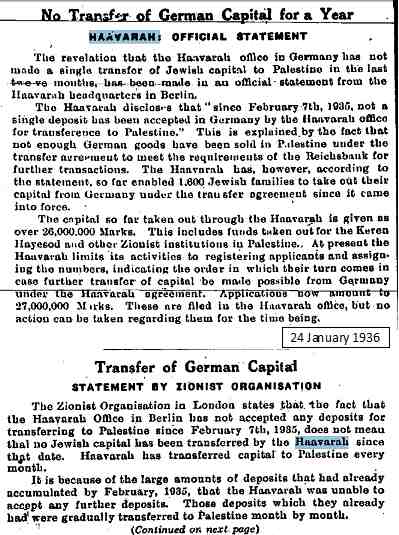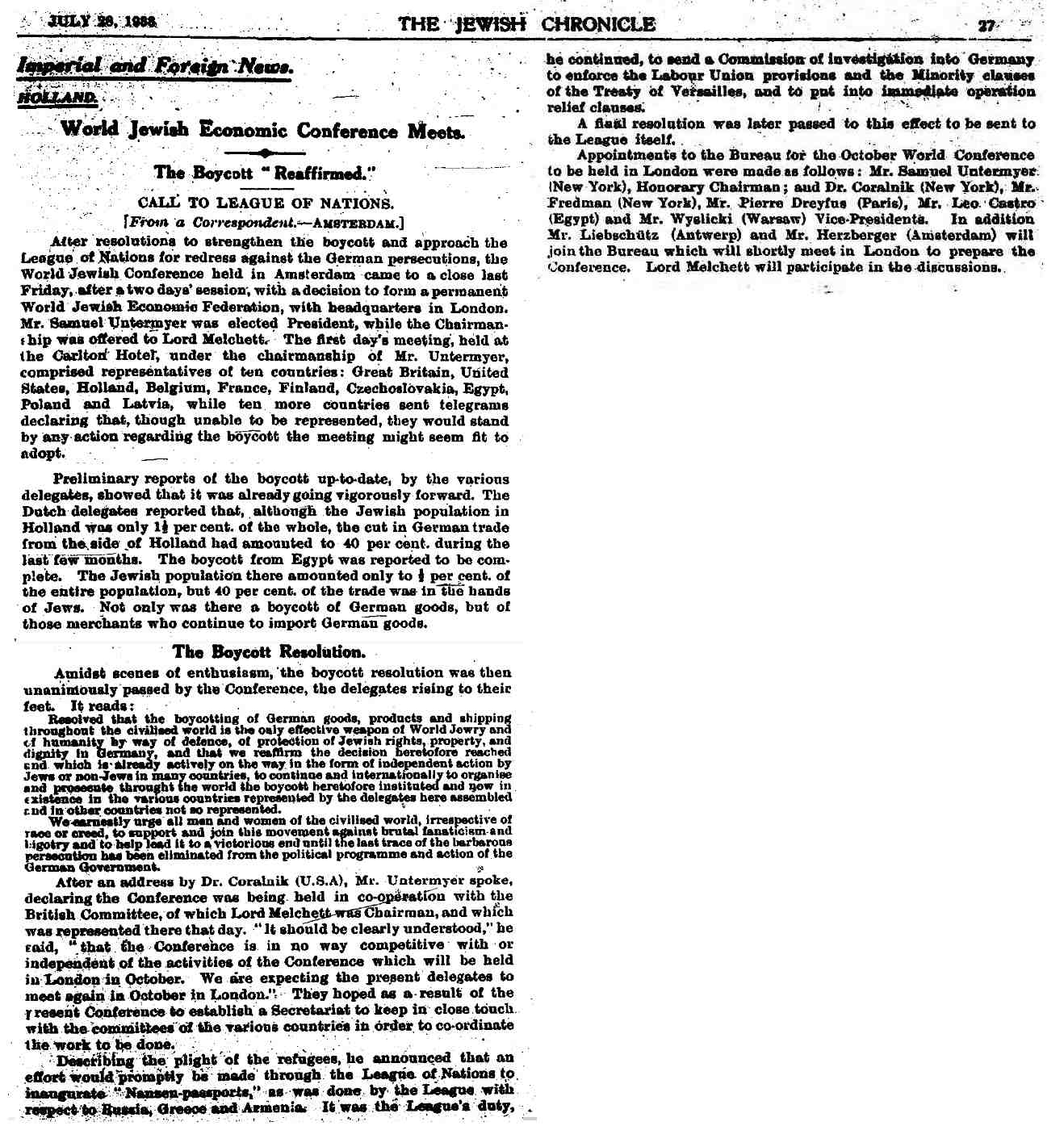Comparisons between the Boycott of Israel and the Boycott of Nazi Germany
In 1933 the Zionist Movement's Trade Agreement (Haavarah) Betrayed German Jews
In 2005 dozens of Palestinian
organisations called for the implementation of a Boycott, Divestment and
Sanctions campaign. A year later the Boycott
took off in Britain when the Association
of University Teachers, now the University College Union, passed a Boycott policy
by a small majority at their national conference.
All sorts of
mainstream bourgeois politicians protested.
All in the name of ‘academic freedom’ of course. The fact that Israel’s universities were
complicit in supporting Israel’s military machine, to the extent that Ben-Gurion
university in the Negev withdrew an invitation to an anti-Zionist Jewish academic,
Yigal Arens, at the instigation of the military, passed them by.
 |
Today nearly all trade
unions in Britain support the Palestinians.
One of the main planks of the Zionist campaign has been to compare the Boycott
of Israel with the Nazi ‘boycott’ of Jewish shops and businesses on 1st
April 1933. In fact the Nazi ‘boycott’
was not so much a boycott as an SA siege of Jewish shops. As such it bears more than a passing
resemblance to that other boycott - the
Israeli blockade of Gaza, which these self same politicians are completely
unconcerned about. Boycotting Palestinians
and starving them out is perfectly acceptable.
Boycott Israel is of course illegitimate, ‘anti-Semitic’, etc.
This is but one
example of the hypocrisy of the politics of imperialism.
I thought it would be
useful to do a little research in the Jewish Chronicle so that people could get
some idea as to the massive support that Boycott of Nazi Germany had amongst
the vast majority of Jews. I say the
vast majority of Jews because there were opponents of a Boycott of Nazi Germany. In Britain and the United States there were
two opponents. The first was the
bourgeois Jews – the American Jewish Committee and Bnai Brith and in Britain
the Board of Deputies which turned its face against any effective anti-fascist activity. In 1936 it called for Jews to keep their
heads down and stay indoors when Moseley announced his intention in October
1936 to march through the East End. The Jewish
workers ignored the Board and 100,000 people, Jewish and non-Jewish workers, in
particular the Catholic Irish dockers of the East End, turned out to oppose
Moseley in what became known as the Battle of Cable Street.
The second Jewish group
that opposed Boycott and there was of course an overlap with the first group
was the Zionist movement. The Zionists
fought tooth and nail against Boycott.
The reason? Because they entered
into a trade agreement with Nazi Germany in August 1933. It was called Ha’avara. It’s purpose was to ‘save the wealth’ of the German
Jewish community. It enabled German Jews
to liquidate their wealth in Germany and put it into a special account
controlled by the Zionist Paltreu in Germany, they were called ‘frozen marks’
and Ha’avara Ltd. in Palestine was then able to put in orders for German machinery
and goods which were paid for with these marks.
It enabled German production to keep up and more importantly it was an
essential indeed vital element in the defeat of the Boycott campaign.
You had to be rich to
take advantage of Ha’avara as you need to be able to take, after taxes, the
equivalent of £1,000 out of Germany.
This was the sum needed to get into Palestine without an immigration
certificate, and the Zionists lobbied furiously to ensure that German Jews could
only go to Palestine.
The Zionists acted, as
Baruch Vladeck, editor of the Jewish paper Forward,
as scab agents of the Nazi regime. The
articles from the Jewish Chronicle illustrate the depth of opposition in the Jewish
community to Ha’avara. Even the Jewish Chronicle opposed it!
I am therefore posting
a selection of articles from the Jewish
Chronicle so that people may gauge for themselves the support of Jews for a Boycott. Ignoring Zionist hasbara and their usual
attempt to smear anti-Zionists, the Boycott
has always been a weapon of the oppressed.
From the Boycott of slave grown sugar in the West Indies, to the boycott
of Captain Boycott by his Irish tenants in Ireland to the Boycott of South
Africa, Boycott has always been a peaceful method of combatting the violence of
the racist and the oppressor.
It's also interesting to see how a Cultural Boycott of Nazi Germany was also vigorously supported. In Paris Jewish teenagers disrupted the showing of German films. Arturo Toscanini, the world famous Italian conductor personally led the boycot of Nazi Germany. How things change and also how they remain the same.
Tony Greenstein































No comments:
Post a Comment
Please submit your comments below